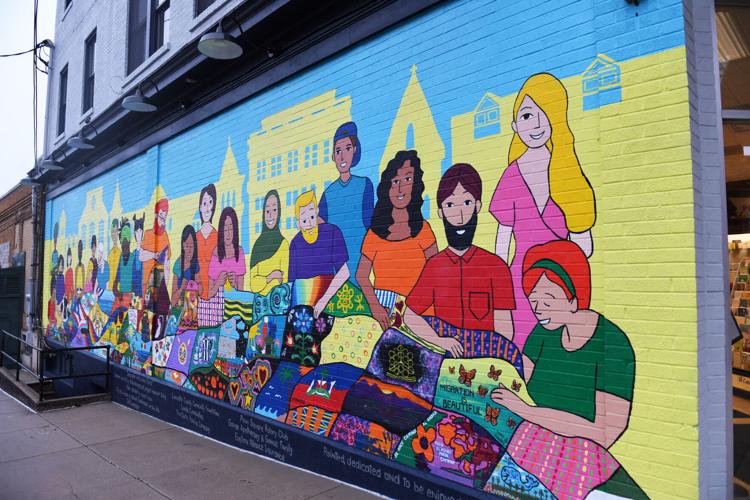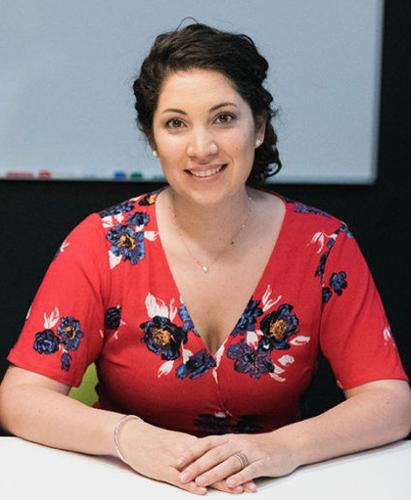My experience as an undocumented immigrant who came to the United States was nothing like people may have thought about or heard about in the news.
At age 17, when I graduated from high school, I made a decision to leave Buenos Aires, Argentina, to explore a new life in Lancaster County because I had extended family who lived here and was familiar with the area from vacationing.
In February 2004, I entered the United States and arrived at John F. Kennedy International Airport in New York. After a couple of months of being here, I realized that the grass is not always greener on the other side. I questioned myself and my future here and whether I made the right decision. As a teenager, I didn’t have the right information or resources to figure out the next steps. After six months, I overstayed my time allowed to be here and became undocumented.
Quickly I learned the hardship of being undocumented. It would have been easier to go back home to my parents. I remember longing to have friends, to work and be independent, maybe even go to college. I was afraid of what people might think of me as soon as they knew I didn’t have documents to be here legally. I learned how to live with a kind of quiet fear, knowing that at any moment, my life could be uprooted without warning.
For two years and 730 very long days, I endured challenges and trauma that I had never imagined in my entire life that I would face for being undocumented. And why didn’t I stay back home? I don’t know. God’s perfect plan is not always easy, painless and perfect in our eyes.
I met my husband a year into living in Lancaster County and we got married a year later. I was able to adjust my status. I became a permanent resident and then, four years later, I applied for citizenship.
Looking back, I see that fear wasn’t just a background hum in my life — it was the drumbeat of every decision I made. Every interaction, every conversation, every plan for the future had to be considered through a lens of uncertainty. The barriers weren’t just systemic — they were psychological. I have been in the United States for two decades now, and I am still finding healing.
Humanity on another level
From the moment that I was able to work and study, I knew that I wanted to serve the undocumented community. I received my bachelor’s degree in criminal justice from Albright College in 2014. I worked for Church World Service Lancaster for a year serving Cuban refugees. I learned about my clients living under communism and poverty, without freedom of speech, and about how they risked their lives in rafts to come to the United States.
Then I worked for three years for the Pennsylvania Immigration Resource Center, a nonprofit in York, serving undocumented survivors of domestic violence, sexual assault and human trafficking. My bubble burst! I saw humanity on another level.
I became eager to understand more about migration. I had clients from many regions around the world, including Africa, Central America, South America and the Middle East. I grew in admiration for my clients. They were not defined by their trauma, but by their incredible resilience, their desire for a better life, and their hope for the future, despite their many hardships.
I firmly believe that immigrants who are in the United States, regardless of their immigration status, are all human beings who deserve compassion, dignity and support as they heal and rebuild from trauma. Humans deserve to feel safe and valued, regardless of their immigration status or where they come from.
As I was eager to learn more, I went on to advance my education. In 2019, I graduated with a master’s degree in international development from St. Mary’s University of Minnesota. I took trips to the U.S.-Mexico border to learn about the area, the needs of people there and the resources available. I loved my short time at the southern border. Border towns know how to get organized in the face of constant marginalization in order to fight injustice and keep people alive. I have visited the Immigration and Customs Enforcement detention facility in Florence, Arizona. I also have visited York County Prison, where immigrants facing deportation proceedings used to be detained, as well as a former family detention center in Berks County.
Fundamental values
Today, I am a proud mom of three children. My wonderful husband, who immigrated to the United States as a child from England, and I have sought to support the undocumented community around us. The Feakins Foundation was created in 2017 in a climate that was, and remains, divided over immigration.
We have a wonderful team of board members who care as much as we do about vulnerable immigrants. We believe that education is one of many forms of resistance and that our scholarship recipients’ voices matter and have power.
Now, I fear that we, as a nation, will lose sight of the fundamental values that make this country great: compassion, opportunity and the belief that we are all connected. Immigrants are not “outsiders” — they are our neighbors, our co-workers, our friends. The divisiveness of this moment will blind us to the truth that, at the heart of it all, we are all human beings striving for dignity, safety and a better life.
As I reflect on the journey that got me here, my heart breaks for those who are still living with the same fears I once had. As a U.S. citizen, I look at the immigrant community and feel a deep sense of compassion, and, yes, worry. That is why, I feel a responsibility to speak out for those who do not yet have a voice, or whose voices are being drowned out by fear and misinformation.
I fear for the children who were brought here as young ones, and who have never known another home but the United States. I fear for those who are waiting for a path to citizenship, who are stuck in an endless bureaucratic cycle with no end in sight. I fear for the families who are torn apart by policies that fail to recognize their humanity.
But more than fear, I hold hope. I believe that the heart of America still beats with a desire for justice, equality and compassion. My hope is that, as a nation, we can move beyond the rhetoric of division and toward a future in which every person, regardless of their immigration status, is treated with respect and dignity. My hope is that we can remember that immigrants are not a threat to this country — they are a part of the fabric that makes it whole.
To the immigrant community, I want to say: I see you. I know your fears because I have lived them. But I also know that together, we can make our voices heard. Together, we can fight for the dignity and justice that we all deserve.
As someone who was once undocumented, I ask that we not forget the struggles that so many still face. Let us hold each other in compassion, rather than in fear. Because at the end of the day, we are all just trying to build a life, just trying to find a place to belong. Right now, our community needs us and I urge people to get involved, to learn and to volunteer. You’re needed now more than ever.
Nadina Cabrera-Pariggi Feakins is the co-founder with her husband Oliver of the Feakins Foundation, which provides scholarships and educational opportunities for immigrants who live in Lancaster County without the necessary documents and want to go to college.


